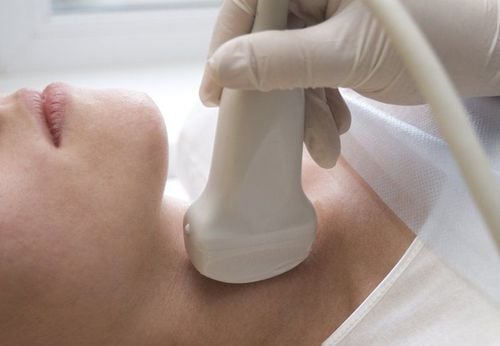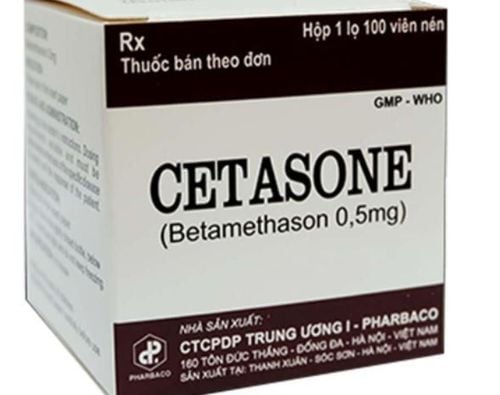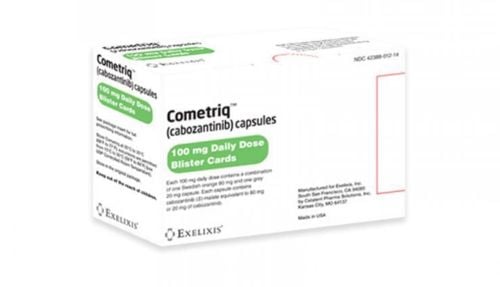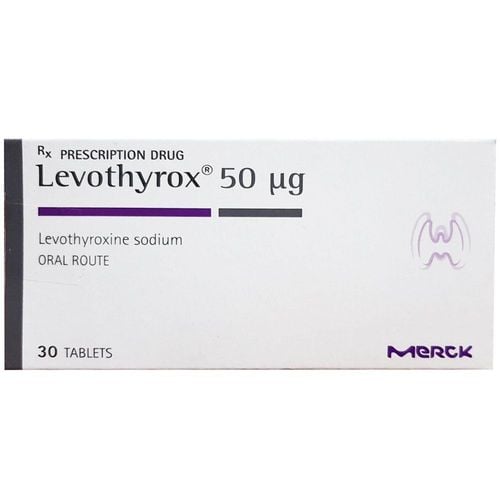This is an automatically translated article.
Thyroid surgery is one of the treatments that plays an important role in the treatment of thyroid cancer. In this article, some issues related to the surgical treatment of thyroid nodules.
1. Things to know about thyroid nodules
1.1 What is thyroid cancer? Thyroid cancer occurs when thyroid cells grow abnormally and uncontrollably, leading to the formation of a tumor in the thyroid gland.
Currently, thyroid cancer can be divided into the following types:
Papillary thyroid cancer: originates from follicular cells and is a common case of thyroid cancer (accounting for about 70% - 80%) , has a relatively slow disease progression. Follicular thyroid cancer: accounts for about 10% - 15% of cases, the disease usually has a faster progression rate than papillary thyroid cancer. Medullary thyroid cancer: quite rare and only about 5% - 10% of cases, often related to genetics as well as endocrine problems. Undifferentiated thyroid cancer: extremely rare, with an incidence of less than 2%, but a very dangerous form of thyroid cancer, very difficult to treat. Lymphocytic thyroid cancer: rare.
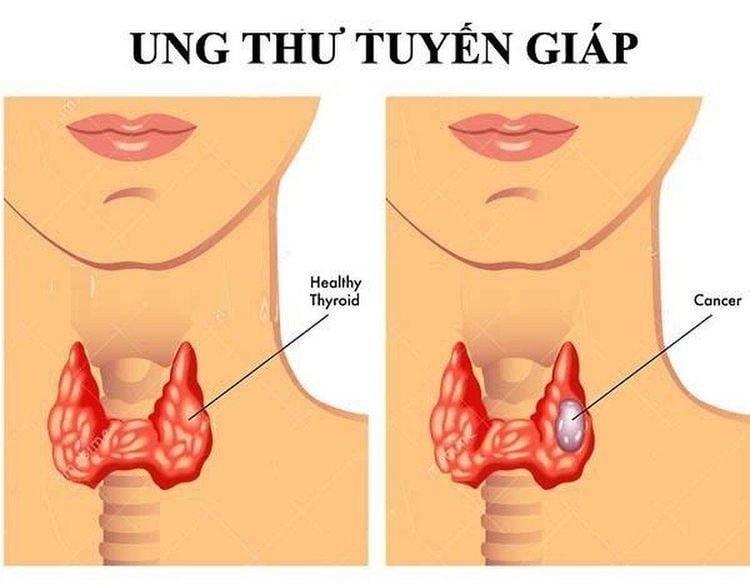
Ung thư tuyến giáp có rất nhiều thể
1.2 What are the symptoms of thyroid cancer? In the early stages, thyroid cancer often has no definite clinical manifestations and is difficult to detect. However, when the size of the thyroid tumor grows larger, the patient will have some signs such as:
There is a thyroid tumor, which is hard and moves according to the patient's swallowing activity. Sometimes, the tumor is large and the neck predetermines the neck; Hoarseness of voice; In the neck area, some small, mobile nodes appear on the same side as the large tumor; Feeling of choking and swallowing in the neck; When the tumor invades the trachea, the patient will feel short of breath; The skin in the neck area is ulcerated, bleeding and infiltrated; Swollen lymph glands, neck pain...
2. Thyroid surgery – the key method in the treatment of thyroid cancer
In the treatment of thyroid cancer, thyroid surgery has a key role. Depending on the specific case, the indications for surgery will be different and along with it are supportive treatments using external radiation or I 131.
2.1 When should a total thyroidectomy be performed? Total thyroidectomy is the most commonly indicated surgery in most cases of differentiated thyroid cancer (some other pathologists may also use this type of surgery for treatment). especially for patients with one or more poor prognostic factors such as:
Age over 40 years old; Previous exposure to radioactive material; Thyroid tumor size more than 4cm; There are histopathology such as differentiated/undifferentiated carcinoma; Presence of multiple foci of cancer in the thyroid gland (signs of invasion); There are metastases such as cervical lymph node metastasis or distant metastasis to bone, lung... However, this type of thyroid surgery also has some contraindications such as:
The patient is too old and has a large size. thyroid tumor is large, invades the esophagus and trachea, cannot remove the entire thyroid gland; Patients with heart failure - severe kidney failure, not able to withstand major surgery. 2.2 Steps to perform a total thyroidectomy The patient will be placed in the supine position with pillows under the shoulders and under the neck so that the neck is tilted to the maximum extent.
General endotracheal anesthesia for the patient; The doctor will make a U-shaped incision with the bottom facing down; Dissection of the skin flap to the lower border of the thyroid cartilage; Thyroid exposure; Perform a total thyroidectomy
3. Some complications after total thyroid surgery
3.1 Vocal cord paralysis This is a common complication seen in most patients after surgery, divided into 2 main types:
Temporary vocal cord paralysis: the patient will have a slight hoarseness and a change in his or her voice. voice, but still able to speak. This condition will gradually decrease over time until it is completely gone. Permanent vocal cord paralysis: during surgery, the retrograde fan nerve was severed. At this time, the patient will have a hoarse voice or even loss of voice, not returning to normal. 3.2 Hypoparathyroidism On the first day after surgery, the patient may have Tetani (sudden muscle contractions). This is a symptom of hypoparathyroidism.
To treat these Tetani attacks, doctors will give calcium chloride 1 gram intravenously. Next, vitamin D3 will be used to gradually reduce symptoms until completely gone.

Bệnh nhân có thể bị suy tuyến cận giáp sau phẫu thuật
3.3 Some other complications The total thyroid surgery can cause some other complications for the patient such as:
Bleeding: doctors need to operate again to stop the bleeding; Shortness of breath: often caused by collapsing trachea or rupture of the recurrent nerve - complications from the phenomenon of thyroid tumors growing large, long-term compression. Therefore, the doctor should pay attention to keep the endotracheal tube for 2-3 days. After removing the tube, it is necessary to monitor the patient's abnormal manifestations for timely treatment. Thus, total thyroid surgery is a major surgery and is widely used in the treatment of thyroid cancer. The patient, if indicated for surgery, needs to be carefully prepared according to the instructions from the doctor to minimize the complications after surgery.
In order for the treatment regimen to be most effective, the time to detect the disease plays an extremely important role. The early detection of the disease means that the patient will have more treatment options, limiting the side effects after treatment. Therefore, monitoring the health of the thyroid gland is very important. You should screen for thyroid diseases when the body shows symptoms such as: neck swelling, hair and skin changes, fatigue, dyslipidemia, decreased sex drive....
Currently, Vinmec International General Hospital provides a screening package for thyroid diseases for all customers. Vinmec's screening and screening package for thyroid diseases helps:
Check thyroid function. Screening & early detection of common thyroid diseases such as simple goiter, hyperthyroidism, hypothyroidism, thyroiditis, thyroid nodules, thyroid cancer, etc. appropriate and timely treatment. To register for an examination at Vinmec International General Hospital, you can contact the nationwide Vinmec Health System Hotline, or register online HERE.




